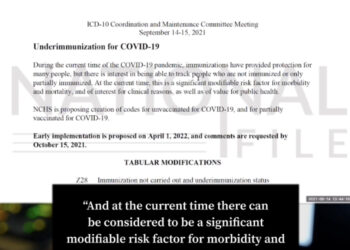Last Updated on March 2, 2021
Theodor Seuss “Ted” Geisel, better known under his pen name, Dr. Seuss, is the latest to encounter cancel culture, as decades after the prolific children’s books author’s death, six of his books will cease publication due to accusations of “racist and insensitive imagery.”
According to the Associated Press, these books have been targeted for destruction since at least last year, and the company finally announced it determined that they could no longer go forward with publishing the children’s books today.
“These books portray people in ways that are hurtful and wrong,” Dr. Seuss Enterprises informed the AP. “Ceasing sales of these books is only part of our commitment and our broader plan to ensure Dr. Seuss Enterprises’ catalog represents and supports all communities and families.”
The allegedly offensive books to be removed from the printing press are “And to Think That I Saw It on Mulberry Street”; “If I Ran the Zoo”; “McElligot’s Pool”; “On Beyond Zebra!”; “Scrambled Eggs Super!”; and “The Cat’s Quizzer”.
According to the AP, “And to Think That I Saw It on Mulberry Street” is racist against Asians, as “an Asian person is portrayed wearing a conical hat, holding chopsticks, and eating from a bowl.” Similarly, “If I Ran the Zoo” is racist against those of African ancestry, as it “includes a drawing of two bare-footed African men wearing what appear to be grass skirts with their hair tied above their heads.”
This comes after years of the country’s most powerful teachers union, The National Education Association, “has for several years deemphasized Seuss and encouraged a more diverse reading list for children.”
It also comes after, in 2017, First Lady Melania Trump was criticized for donating 10 “racist” Dr. Seuss books to a school district in Virginia, with leftists at the time complaining that Dr. Seuss’s children’s books are “steeped in racist propaganda, caricatures, and harmful stereotypes.”
Academia greeted the proverbial book burning with glee. Rebekah Fitzsimmons, a professor at Carnegie Melon University, celebrated the decision on Twitter. “The books we share with our children matter,” she wrote. “As grown-ups, we have to examine the worldview we are creating for our children, including carefully re-examining our favorites.”
The books we share with our children matter. Books shape their world view and tell them how to relate to the people, places, and ideas around them. As grown-ups, we have to examine the worldview we are creating for our children, including carefully re-examining our favorites. https://t.co/z9YVLY3ayC
— Dr Rebekah Fitzsimmons (@DrFitzPhD) March 2, 2021
More Dr. Seuss books may soon be on the chopping block, including the immensely popular “The Cat In The Hat”, which has been identified as racist. Additionally, “Babar The Elephant” was already removed from British bookshelves in 2012, after the book was accused of promoting the racist ideas of Western civilization.





















